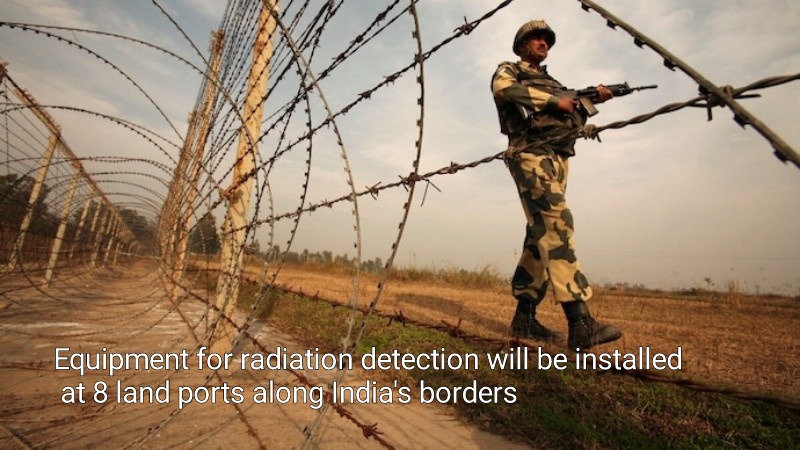
According to officials, eight land crossing sites along India’s borders with Pakistan, Bangladesh, Myanmar, and Nepal will soon have Radiation Detection Equipment (RDE) placed to monitor the trafficking of radioactive materials for their potential use in creating nuclear devices.
The Integrated Check Posts (ICPs) and land ports in Attari (on the border with Pakistan), Petrapole, Agartala, Dawki, and Sutarkandi (all on the border with Bangladesh), Raxaul and Jogbani (in Nepal), and Moreh (in Myanmar) will all have the RDE installed.
According to an official with knowledge of the issue, the government has awarded the vendor a work order for the supply, installation, and maintenance of RDE at eight operating ICPs under a contract that was signed last year.
To stop the trafficking of radioactive materials across international borders, the central government took the initiative to establish the RDE. There are a significant amount of cross-border movements of people and goods within the eight ICPs.
According to another official, any radioactive material smuggling could provide a difficulty for India’s security forces because it could be used to create nuclear or radiological dispersal devices.
A drive-through monitoring station that keeps an eye on vehicles and their goods will have the RDE installed.
Despite the fact that foot traffic in other ICPs is strong, the movement of people and products through the Attari ICP has significantly decreased as a result of the present thaw in relations with Pakistan.
The RDE could be used by the security departments at the ICPs to keep an eye on cross-border freight traffic.
‘The RDE is equipped with raising separate gamma and neutron radiation alarms and generating video frames of suspected objects,’ the official said.
Additionally, it will be able to distinguish between special nuclear material and naturally occurring radiation found in ceramics or fertilizer as well as high-energy gamma isotopes, a characteristic of recycled uranium.
The installation of the RDE is thought to have involved some technical assistance from a few international agencies, particularly those from the US.

Post Your Comments